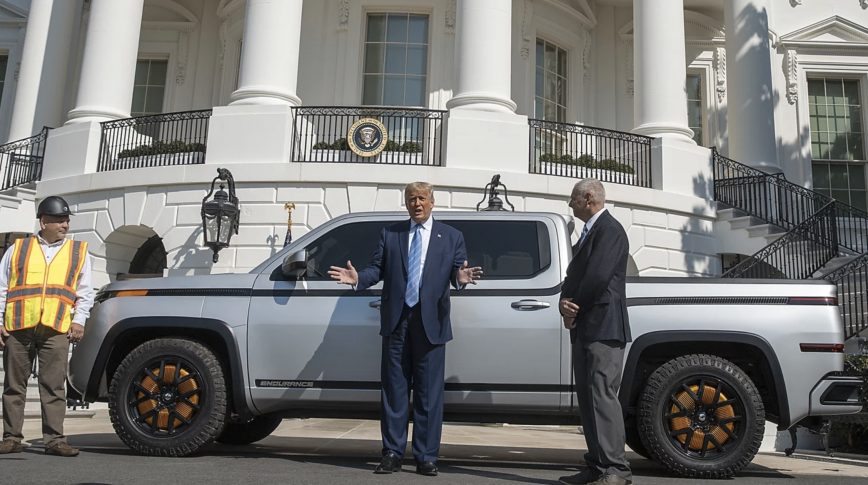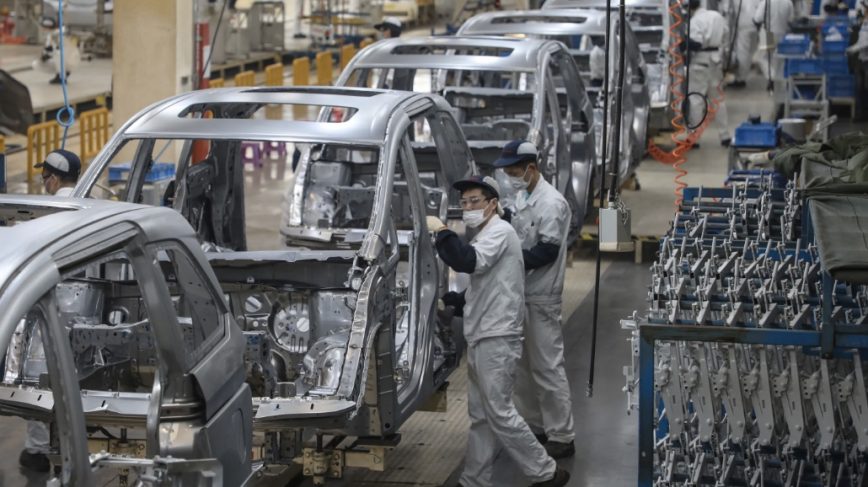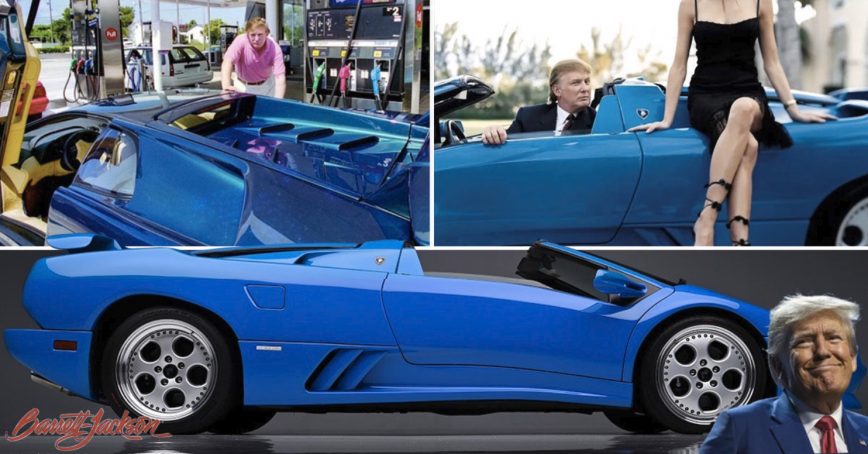Trump’s New Pledge to Stop All Electric Vehicle Sales

Donald Trump Vows to Halt Electric Car Sales: “You Won’t Be Able to Sell Those Cars”
Former United States President Donald J. Trump, amidst a legal battle involving 34 felony counts, has launched a controversial campaign strategy for his re-election bid this fall. Trump allegedly is targeting the burgeoning electric car industry, pledging to halt the sale of electric vehicles (EVs) if he regains the presidency. This bold declaration has sent shockwaves through the automotive industry and sparked a heated debate about the future of transportation in America.

A Return to Oil and Gas
As part of his campaign, Trump has openly called for oil and gas industry executives to provide substantial campaign contributions. In return, he promises to dismantle the Biden administration’s climate policies. This would include rolling back stringent tailpipe emissions targets and slashing EV tax credits. Trump’s stance reflects his unwavering support for the fossil fuel industry and his skepticism about climate change and green technology.
The Changing Automotive Landscape
Today’s automotive industry vastly differs from what it was in 2016 when Trump first took office. Back then, the EV market was in its infancy, with just 159,139 electric vehicles sold in the U.S. that year. Fast forward to 2024, and EV sales are projected to exceed 1.5 million, accounting for 10 percent of all new car sales in the country. The market has evolved from a niche segment catering to early adopters to a mainstream option embraced by a growing number of consumers.
Despite Trump’s previous efforts to boost the fossil fuel industry, the momentum behind electric vehicles has only accelerated. Analysts believe that even if Trump were to eliminate EV tax credits, the market would reach a critical mass that would ensure its continued growth, albeit potentially at a slower pace.
Can Trump Really Slam the Brakes on Electric Vehicles?

Industry Reactions
Key figures in the automotive industry have voiced their concerns about Trump’s proposed policies. William Clay Ford Jr., executive chair of Ford Motor Company, emphasized the long-term planning required in the automotive industry. Speaking at an event organized by the Detroit Free Press, Ford highlighted the challenges of adapting to rapidly changing political climates. “Our time frame as a company, our planning time frame, is a lot longer than election cycles,” Ford said. “When we’re whipsawed back and forth by politicians, that becomes really difficult for us.”

Ford’s sentiments are echoed by many in the industry who worry that abrupt policy changes could disrupt the substantial investments already made in EV production and infrastructure. President Joe Biden’s Inflation Reduction Act, for example, has spurred significant investment in U.S. manufacturing. Hyundai is investing $13 billion in electric vehicle production in Georgia, a state Trump narrowly lost in the 2020 election. Such investments highlight the economic opportunities created by the shift toward electric vehicles, opportunities that Trump’s policies could potentially jeopardize.
Economic and Political Implications
Trump’s stance on electric vehicles could have far-reaching implications, particularly in states that rely heavily on manufacturing jobs. By threatening the livelihoods of blue-collar American workers employed in the burgeoning EV sector, Trump may be undermining his support base in key swing states. States like Georgia, Michigan, and Ohio have benefited from the influx of investment in electric vehicle production and infrastructure, creating thousands of jobs and boosting local economies.
Even traditionally Republican states like Texas and Florida are witnessing a surge in electric vehicle adoption. These states now trail only California in terms of EV registrations. The growing popularity of electric vehicles among Republican and Democrat consumers alike suggests that Trump’s hardline stance might alienate a significant portion of the electorate.
The Irreversible Momentum of the EV Market
The rapid adoption of electric vehicles in recent years has created an unstoppable momentum. Automakers, charging infrastructure companies, dealership networks, and advertisers have collectively invested billions of dollars into the EV market. This substantial financial commitment has built a robust ecosystem that is unlikely to be dismantled by a change in political leadership.
Texas and Florida, both Republican strongholds, exemplify the widespread acceptance of electric vehicles. Residents in these states have increasingly chosen EVs as their preferred mode of transportation. The shift reflects not only environmental considerations but also economic ones, as electric vehicles offer lower operating costs compared to traditional gasoline-powered cars.
The Path Ahead
Trump’s campaign strategy, which aims to halt the progress of the electric vehicle market, represents a significant gamble. By appealing to his core base with promises to revive the fossil fuel industry, he risks alienating a broader electorate that includes many who have embraced the transition to electric vehicles. The success of his strategy will hinge on whether he can convince voters that his policies will lead to greater economic prosperity, despite the potential setbacks for the growing EV sector.
As the 2024 election approaches, the automotive industry, consumers, and political analysts will closely monitor the unfolding developments. The outcome of the election will undoubtedly shape the future of the American automotive landscape, influencing whether the country continues on its current trajectory toward widespread EV adoption or reverts to policies favoring traditional fossil fuels.
Conclusion
Donald Trump’s vow to halt electric car sales if re-elected presents a stark contrast to the current trajectory of the automotive industry. His promise to roll back EV tax credits and tailpipe emissions targets aligns with his longstanding support for the oil and gas industry. However, the rapid growth of the electric vehicle market, driven by substantial investments and widespread consumer adoption, suggests that reversing this trend may be more challenging than anticipated.
The future of electric vehicles in the U.S. remains uncertain as the country heads into the 2024 election. The decisions made by voters will determine whether the momentum behind electric vehicles continues unabated or faces significant roadblocks. Regardless of the outcome, the debate underscores the critical intersection of politics, economics, and environmental considerations in shaping the future of transportation in America. Photo Credit- AP Photo/Evan Vucci
Donald Trump’s 1997 Lamborghini Diablo Sets Records At Barrett-Jackson Auction
Human tendencies can be quite peculiar, especially when it comes to the intrinsic value we place on items simply because they once belonged to a specific individual. The idea that an object, nearly identical to another, can command significantly more money just by virtue of its previous owner reflects a fascinating aspect of our society’s values.

Biden’s Infrastructure Bill Will Require “Mandatory Backdoor Kill Switch For Trucks & Cars” – Here’s The Explanation
Joe Biden’s infrastructure bill has cropped up yet again after a TikTok user pointed out that it seems as if the bill requires all cars to have a “mandatory kill switch” by the year 2026. The thought of this dystopian concept is enough to really make one’s hair stand on edge as they think of all the possibilities that might come if the government has remote control over their vehicle’s operation.


